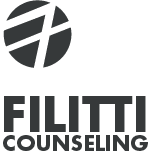Gamifying your psychological well being, internet for everyone from space and skipping coffee …all in this week’s Reading List.
Therapists’ Apps Aim To Help With Mental Health Issues
By Maanvi Singh
Read the Full Article
Gamification — the use of video game techniques to do more than just entertain — is a big buzzword these days. It’s being used in management, education and advertising.
And now, mental health. Our field needs to continue to explore new ways in which individuals can role play, test their own interpersonal theories and track their psychological health. Games, technology and comic books (shameless plug!) should continue to get pulled in to our field. I use an app to track my sleep patterns, my diet, the number of steps I take, my exercise and almost every other daily activity. There’s even apps for making sure you drink enough water. It’s about time we start tracking our psychological well being too. Although, one could argue tracking sleep, exercise, activity levels and diet are a major step in the right direction of stable mental health, but that’s for another debate.
In her article, Maanvi continues discussing how these new apps are being used for this exact purpose:
Her app, called ReliefLink, is more of a mood-tracking tool than a video game. It tweets users regular affirmations, helps them make a safety plan and puts them it touch with nearby resources if they’re contemplating suicide. Koslow says she is starting to test the app’s effectiveness.
Apps like ReliefLink that can be used in conjunction with therapy are getting more scientific attention these days.
Good. ’Bout time!
All About Google Loon’s Low-Cost Space-Based Competitor, Outernet
By Michael Grothaus
Read the Full Article
I’m including this article just because it’s cool. And well written.
It may come as a shock to anyone reading this article, online, right now, but as pervasive as the Internet is in 2014, two-thirds of the world still does not–and never has had–access to it. That’s almost 4 billion people who don’t enjoy the same access to the open and free information that you and I do.2
“Imagine if everyone in the world had access to the latest resources for learning, constantly updated,” Karim says. “And now imagine that this is available for free. What does the future of humanity look like when a basic level of information and education is available to everyone? I don’t know what it looks like, but I really want to find out.”
Want More Energy? Skip the Coffee, and Call Your Mom Instead
By Laura Vanderkam
Read the Full Article
The most fascinating part of their work, though, is their finding that physical activity isn’t the only thing that boosts energy. Interacting with people is also energizing, though it has to be the right people. “Talking to a coworker wasn’t nearly as energizing as talking to a loved one,” Nikolovski says. They plotted various energy boosters on a 1–10 point scale and compared these to the default energy booster: coffee. “When you go to reach for energy, you reach for caffeine,” Nikolovski says. People who’d had a coffee in the 30 minutes before reporting their energy levels scored a 6.8. People who’d talked to a loved one? They scored around 7 on the 1–10 point scale.
In other words, if you need a pick-me-up at work, calling a loved one is better than an espresso.
Put down the mug, step away from the coffee and go call a loved one!
Why a Reading List? I do a good amount of reading and I‘m constantly finding articles which are informative, entertaining and applicable to my private practice. Instead of hoarding this information to myself, I’ve decided to begin sharing the articles and pull quotes on a semi-regular basis.
